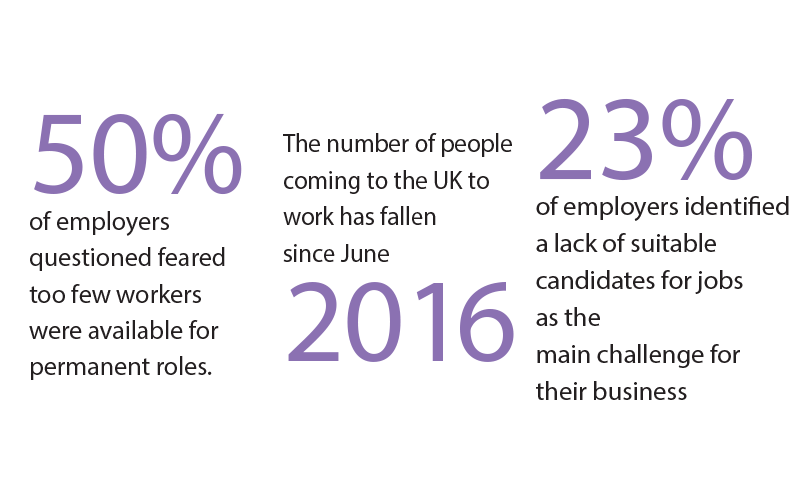The Intelligence: A clearer outlook – but drought warnings ahead

Thalia Ioannidou, Research Manager at the REC, looks ahead at 2020.
After a year of uncertainty, what should we expect in 2020?
At last the path ahead is looking more predictable. Recruitment activity picked up at the end of 2019 and we saw permanent placements rise for the first time in a year. This upturn was linked to increased business activity and organisations approving new hires after a long period in which they delayed making decisions. Temporary billings also rose (‘Report on Jobs’, January 2020).
Employers’ hiring intentions in the short and medium term were encouraging. Forecast demand for permanent staff in the last quarter of 2019 was positive, at net: +21 in the short term and net: +26 in the medium term. Short-term demand for temporary agency workers rebounded by nine percentage points from the previous rolling quarter, while medium-term demand also rose by four percentage points (‘JobsOutlook’, January 2020).
23% of employers identified a lack of suitable candidates for jobs as the main challenge for their business
Where have all the people gone?
The declining number of people available for new roles remains a concern. December 2019 saw a further reduction in staff supply as the number of people available for permanent jobs fell faster than for short-term work. Similarly, in a survey conducted by the REC in December, one in four employers (23%) identified a lack of suitable candidates for jobs as the main challenge for their business – higher than a lack of skills or experience in the organisation (12%) and compliance and/or legislation (12%).
In the last quarter of 2019, half the employers questioned feared too few workers were available for permanent roles. The main skills shortages were in the construction, health and social care, and engineering and technical sectors. Meanwhile, 27% of employers of temporary agency workers had similar concerns. This may be linked to worries about IR35 reforms.
Eyes on the EU trade negotiations
The number of people coming to the UK to work has fallen since June 2016. Fewer EU citizens, in particular, are immigrating, so how will businesses and public services cope with further reductions?
It is vital that the government makes the supply of workers a priority in its negotiations with the EU. If not, they will fail to reassure businesses and workers or build confidence in the economy. Note: Data is from the REC’s monthly surveys of employers (‘JobsOutlook’) and of recruitment consultancies (‘Report on Jobs’).
